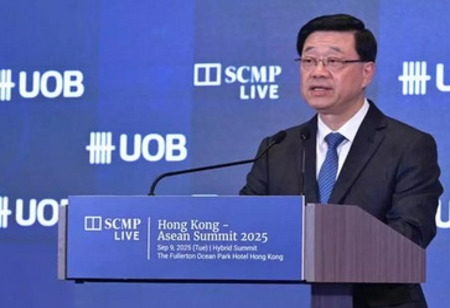
Business Leaders Urge Stronger Ties at Hong Kong-Asean Summit


Corporate executives have advocated for enhanced economic cooperation within the Association of Southeast Asian Nations (ASEAN) to enable the regional bloc to achieve frictionless commerce and movement across member countries, while maximizing its capabilities as an area with an expanding youthful middle-class population.
Presenters at Hong Kong-ASEAN Summit 2025 emphasized that ASEAN, despite needing to address obstacles arising from the varied nature of its 10 member nations, represented an appealing center offering investment possibilities.
Wang Shuguang, who serves as president and management committee member at financial services firm China International Capital Corporation, described ASEAN as a crucial initial phase for Chinese enterprises looking to expand internationally.
Also Read: 6 Successful Business Ventures of Cristiano Ronaldo
Esther Wong, who founded and leads AI investment company 3C AGI Partners, shared the view that the youthful population created substantial market potential, though she pointed out the absence of unified data standards across the region.
According to Wong, the absence of standardized data protocols and transfer regulations creates difficulties in identifying optimal data utilization methods, which forms the basis of artificial intelligence technology.
Also Read: Advice from 5 CFOs Germinating Growth and Innovation in 2025
Nevertheless, presenters observed significant political commitment toward promoting unrestricted regional travel, as demonstrated through the ASEAN 2045 initiative.
This initiative encompasses the organization's pledge to simplify procedures and eliminate obstacles that would enable smooth movement of commerce and individuals throughout member nations, including through additional improvements and expansion of agreements designed to enhance travel convenience.
Also Read: Singapore to Strengthen Partnership with IN-SPACe
According to Christine Ip, who heads Greater China UOB, some obstacles involve variations in languages and religious practices, along with different regulatory compliance and capital control requirements.

